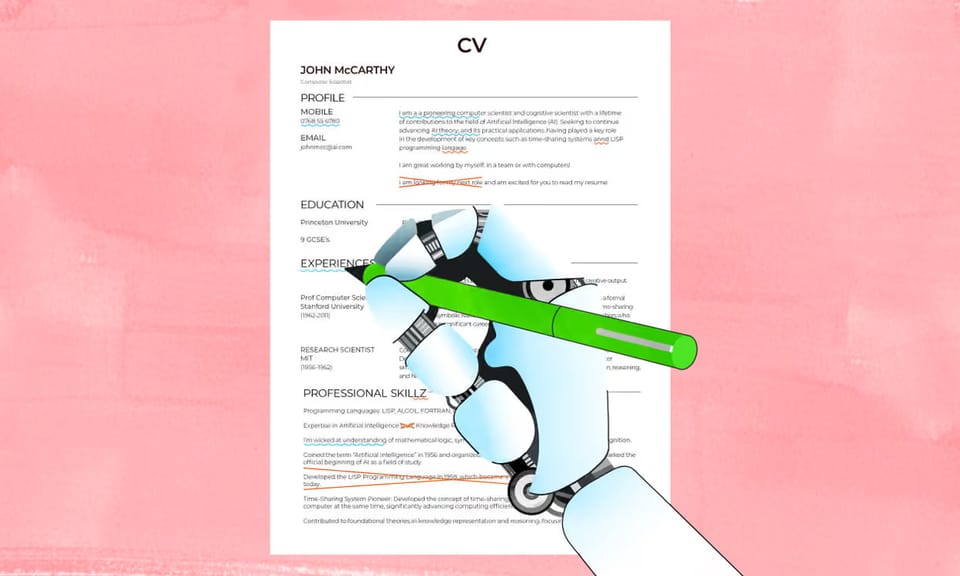Is Audible Killing Storytelling with AI Narrators?


Today's issue has it all:
- Audible’s new robot narrators
- Billie Eilish clapping back at fake Met Gala pics
- The Spurs using ChatGPT off the court
- American Airlines testing tech that might actually hold your flight
- The FBI’s warning about AI scammers posing as U.S. officials
- Legal tech just scored a big funding boost
Let’s dive in.
Entertainment
Is Audible killing storytelling with AI narrators?

Briefing: Audible rolled out a new feature that uses AI voices to narrate audiobooks. They’re offering over 100 computer-generated voices in English, Spanish, French, and Italian, with plans to add AI-powered translations later this year.
Details: Publishers can choose between two options;
- Audible-managed: Audible handles the AI narration process.
- Self-service: Publishers use Audible's tools to produce their own AI-narrated audiobooks.
There’s also an option to have human linguists check the AI translations for accuracy.
Audible's CEO, Bob Carrigan, says this move aims to make more audiobooks available worldwide, helping authors reach new audiences.
However, some authors, translators, and voice actors are pushing back. They argue that AI lacks the emotional depth and nuance of human narrators. People are also worried that AI could leave out diverse voices and harm the environment; AI models use tons of energy and water, which can increase pollution and strain natural resources.
Why It Matters: This shift could change how audiobooks are produced and consumed. While it might make audiobook creation faster and more affordable, it also raises questions about quality, authenticity, and job security for human narrators. As AI continues to evolve, the publishing industry will need to navigate these challenges carefully. (The Guardian)
Fashion
Billie Eilish Shuts Down Fake AI Met Gala Look

Briefing: Billie Eilish is setting the record straight after AI-generated photos falsely showed her at the 2025 Met Gala. She wasn't there, she was performing in Amsterdam.
Details: On May 14, Billie took to Instagram to address the fake images circulating online. She clarified that the photos were created using artificial intelligence and that she was on tour in Europe during the event. Despite her absence, the AI images sparked criticism about her supposed outfit, prompting her to respond, "I wasn't there... That's AI. I had a show in Europe that night. Let me be! I wasn't even there!"
Why It Matters: This incident highlights the growing issue of AI-generated content spreading misinformation. With technology making it easier to create realistic fake images, public figures like Billie Eilish are finding themselves needing to debunk events they never attended. It's a reminder to be cautious about what we see online and to verify information before believing or sharing it. (People)
Sports
How the San Antonio Spurs Use AI to Win Off the Court

Briefing: The San Antonio Spurs are using ChatGPT to boost team operations and connect with fans worldwide.
Details: The Spurs have integrated ChatGPT into their daily work. They're using it to analyze fan feedback, spot fake merchandise, and keep team culture strong by training the AI on their own docuseries. This move has saved them over 1,800 staff hours each month. They're also teaming up with the University of Texas at San Antonio and the Air Force to explore how AI can help with coaching.
Why it Matters: This shows how AI is changing the game, even in sports. The Spurs are leading the way by using tech to improve both their business and how they connect with fans. (Axios San Antonio)
Travel
Will This New Tech Hold the Plane for You?

Briefing: American Airlines is testing new tech at Dallas-Fort Worth Airport to help passengers with tight connections. The system identifies flights with connecting travelers at risk of missing their next flight and may hold the plane briefly to let them board.
Details: The in-house technology spots when connecting passengers might not make their next flight. If a short delay won't mess up the schedule, the system suggests holding the plane so those passengers can get on. After Dallas-Fort Worth, the test will expand to Charlotte and other hubs this summer.
Why it Matters: With over 715,000 flights planned between May 16 and September 2, American Airlines aims to reduce missed connections during the busy summer travel season. This tech could make travel smoother for many passengers. (Chron)
Politics
Scammers Are Now Posing as U.S. Officials, Says FBI

Briefing: The FBI is warning that scammers are using AI to fake voices and texts from top U.S. officials. Their goal? To trick people into sharing personal information.
Details: Scammers are going after current and former government officials and their contacts. They first gain trust through messages, then trick victims into visiting fake websites that steal their login info. The FBI hasn’t shared how many people were hit or who’s behind it.
Why it Matters: This tactic could put more officials at risk and expose private info. It’s part of a growing trend of AI-powered scams that make it harder to tell what’s real and what’s fake. (Reuters)
Legal
AI Is Taking Over Law And Investors Are All In

Briefing: Legal tech is booming in 2025, funding rose 80% in the first quarter. Startups are using AI to change how legal services work, and investors are backing them big time.
Details: Legal tech companies raised around $1.83 billion in Q1 2025, up from $1 billion in the same period last year. This jump is thanks to the growing use of AI tools that help with contract writing, legal research, and reviewing documents.
Investors are pouring cash into legal tech startups. Supio raised $60 million to support personal injury and mass tort law firms (firms that deal with big, complex lawsuits involving many clients harmed in a similar way). While Theo AI landed $4 million to build tools that predict legal outcomes with AI. Meanwhile, Harvey AI, founded in 2022 is reportedly raising over $250 million, pushing its valuation to $5 billion, up from $3 billion just a few months ago.
Why it Matters: AI is changing how legal services are delivered. Clients want faster, smarter solutions, and law firms are feeling the pressure to keep up. This is driving demand for AI tools, and big investments are following, marking a major shift in how the legal industry uses technology. (Law360 Pulse)
Finding this informative? Share. Didn't like it? Feel free to unsub.
Don't want to miss any of our emails? Add us to your contacts: newsletter@tomorrowsbriefing.news




